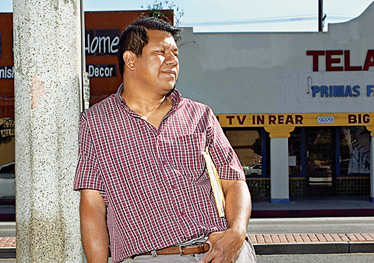Pablo Alvarado still remembers the terror he felt as a young, undocumented Salvadoran immigrant that morning in Woodland Hills, Calif., 13 years ago, when five police cars with sirens blaring and lights flashing converged on him, summoned by nervous residents who assumed he was a criminal. Eventually, he convinced the cops that he was pursuing a job offered by one of the residents' neighbors. "All day workers go through things like that and worse," says Alvarado.
As coordinator of the National Day Laborer Organizing Network for the past three years, Alvarado, 38, is considered the Cesar Chavez of the jornaleros (day workers), who assemble on street corners, offering to do odd jobs. He is credited with, among other triumphs, spearheading the campaign to overturn ordinances around the country that prohibit day laborers from soliciting work in public places and with forming alliances on issues like better working conditions and higher wages with union federations, which tend to see immigrants as competitors.
Alvarado, who has permanent resident status and a wife and two children in Pasadena, has organized soccer teams and music groups to forge ties among immigrant laborers who compete with one another for jobs. "It's difficult to oppress people who have a sense of identity and unity," he says. "Our struggle is about being seen as human beings trying to earn our daily bread."
